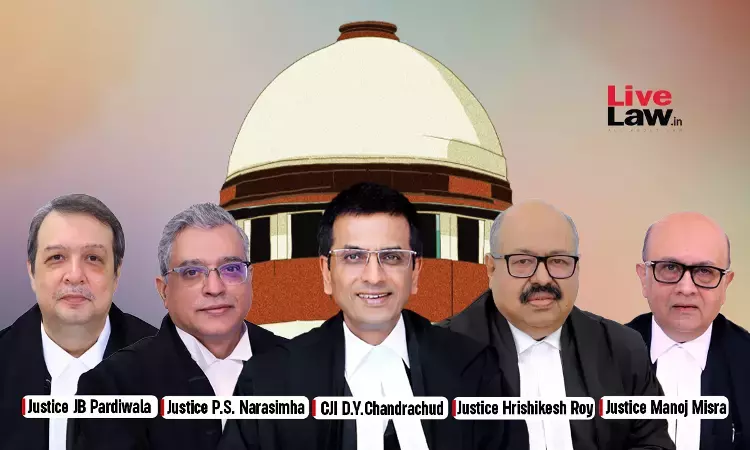Can A Person Who Is Ineligible To Be An Arbitrator Nominate Arbitrator? Supreme Court Reserves Judgment
Anmol Kaur Bawa
30 Aug 2024 8:30 PM IST

Next Story
30 Aug 2024 8:30 PM IST
The Supreme Court today (August 30) reserved its judgment on the reference issue of whether a person, who is ineligible to be appointed as an arbitrator, can appoint an arbitrator.The Constitution Bench comprising Chief Justice of India DY Chandrachud, Justice Hrishikesh Roy, Justice PS Narasimha, Justice JB Pardiwala, and Justice Manoj Misra was considering the validity of an arbitration...
